When I was a boy, I remember my grandmother always seemed to have a box of chocolates lying around. I like chocolate. Ok, that’s a lie. I love chocolate. But not all chocolates were created equal. I like pure milk chocolate. Don’t “poison” it with nuts (unless it’s M&M Peanuts) or – God forbid! – put mint in it. Often the box of chocolates came with a legend that described what each was, but sometimes it was misplaced and you just had to take your chances. The movie “Forrest Gump” made this situation famous with the line “My mama always said life was like a box of chocolates. You never know what you're gonna get.''
Of course, nothing beats “The Good, the Bad, and the Ugly” for analyzing policies, so let’s do that with some of the more newsworthy policies of late.
The Good
President Trump has announced plans to dismantle the Department of Education (DOE) through an executive order. His stated goal is to shift control of education back to state and local governments, reducing federal regulations and giving parents and school boards more influence over curricula. Critics argue that eliminating the DOE could disrupt public schooling and cut funding streams, particularly for special education and low-income students.
The headcount at the DOE has fallen 14% since 2000 while spending is up 649%. Compare this to the effects of inflation which has seen prices increase about 1.79 times their 2000 levels.
What is the return on this “investment?” I can’t tell you where the money is going but at the very least one would expect test scores to be increasing.
NAEP math scores since 2000 show an arc of progress through 2013 (up 17 points for fourth grade, 13 for eighth), followed by a plateau, then a sharp pandemic-induced decline by 2022 (down 5 and 8 points from 2019, respectively). As of 2024, scores remain below pre-pandemic levels—fourth grade at 237 (vs. 241 in 2013) and eighth grade at 274 (vs. 285 in 2013)—indicating that while the freefall has slowed, recovery is incomplete, and long-term gains have been partially erased.
Pre-pandemic this translates into a 7.6% increase at the 4th grade level and a 4.8% increase at the 8th grade level.
To put it simply, meh.
America’s international performance is as bad if not worse. The most reliable way to measure this is through PISA (Program for International Student Assessment), which tests 15-year-olds worldwide every three years in math, reading, and science.
U.S. student performance has remained average to below average compared to other developed nations since 2000, especially in math and science, while reading scores have been more competitive.
Given these results it’s clear that the 45-year DOE experiment has been, at best, ineffective, and should come to an end. The billions invested have not had a meaningful impact on student test scores. Returning control of education to the state level would give parents and school boards more influence over curricula and create interstate competition, forcing underperforming states to adopt policies and techniques that work. Competition is good. Centralized control is not.
The Bad
The situation with Ukraine is bad. In many ways. Yes, the blowup in the Oval Office is one of those ways. However, as embarrassing as the behavior was from all involved and how damaging it may be for the coalition supporting Ukraine, it is not the “bad” I’m referring to. The Ukrainian situation is bad because there are no good choices.
There appear to be three options:
Abandon Ukraine
Continue to support Ukraine
Negotiating a peace deal.
#1 is a non-starter. To abandon Ukraine would be akin to telling Putin that the West lacks the stomach to resist him.
#2 is the clear choice of everyone who opposes a peace deal. My problem with this approach is that there does not appear to be a clear end goal. Is it “victory?” If so, what is the definition? Calling for “the defeat of Putin” is equally vague. What does that mean? I've crossed paths with a few people over the last few days who have taken issue with this question. Their positions seem to be this isn’t about money and “victory” is whatever the Ukrainians decide it is. Their positions can be summed up:
The Ukrainians should decide what “victory” means.
It’s about democracy
It’s about morality
It’s not about money and/or you can’t put a price on saving democracy.
These positions show a lack of reasoning, an inability to comprehend real world consequences, a failure to consider risk and reward.
The argument that Ukraine alone should decide the definition of “victory” is absurd. Are Western countries expected to write Ukraine a blank check and say, “do whatever you want?” What if the Ukrainian definition of “victory” requires an invasion of Russia? No, those funding the war must have some say.
The morality and democracy arguments are weak as well. If morality is the reason the West is funding Ukraine, the West would be funding “the good guys” in every other war in the world. You also can’t very well argue that the war is about democracy and then turn around and say citizens in other democracies shouldn’t have a say in how their tax dollars are spent.
No, for the West, the war in Ukraine is about self interest and self-interest must balance the long term with the short term.
Important questions that must also be answered include:
Is NATO willing to escalate the war by enforcing a no-fly zone?
Does winning the war require putting NATO forces (let’s be honest, American forces) on the ground?
Is “victory” worth the risk of starting World War III? If not, then #1 and #2 are non-starters.
What is the chance of nuclear war? What level of risk is acceptable?
Want to know how to beat the Russians? It won’t be easy, but the West did it before. Go back and study the Cold War. The Soviets invaded several countries, and the West did not provide unlimited funds to these nations for one simple reason, the risk of nuclear war was deemed too great. The Cold War wasn’t won through direct military action but through containment and long-term opposition. Like the Soviet Union, Russia, no, let’s be honest who the West is fighting here, Putin won’t be defeated through direct military action but by adopting the Cold War strategy of containment. It’s not the big beautiful story of good triumphing over evil, but it worked.
Something else to take into consideration. If you think America is headed for war (with Russia, China, or whoever), arms and munitions will obviously be needed. Here’s how long it will take to replace some of the arms and ammo sent to Ukraine:
155mm artillery shells - 4 to 7 years
Javelin anti-tank missiles - 8 to 10 years
Stinger anti-aircraft missiles - 10 to 15 years
HIMARS systems and rockets - 2.5 to 4 years
Wars cannot be fought indefinitely. Victory needs a clear and achievable definition. If your goals aren’t achievable, which I’d argue kicking Russia out of Ukraine isn’t, then a negotiated peace is the best you’re likely to get. It’s not surrender; it’s learning to pick the fights you can win. Like it or not, Trump is right to pursue a peace deal.
The Ugly
Tariffs. Yes, it’s tariffs again. I’d love to stop writing about them, but they just won’t go away. If you’ve read any of what I’ve written on the subject, you know I’m not a fan. However, this is less about the tariffs than it is about how some Canadians are reacting to them.
Ontario and Manitoba which together sell over $1 billion worth of U.S. liquor annually began pulling American brands from store shelves, Ontario has implemented a 25% surcharge on electricity exported to the United States, targeting approximately 1.5 million homes and businesses in Minnesota, Michigan, and New York, and the Canadian federal government has announced reciprocal 25% reciprocal tariffs on billions of dollars of US goods. However, if the news is to be believed, these all pale in comparison to Canadian sports fans booing the American national anthem.
I went to a Canucks game on Friday, my first since the Trump tariff threats began and was surprised by the volume of booing when the US anthem was sung. It wasn’t everyone because despite how loud it was, I could not identify anyone near me who was booing.
I’d rather fans not boo. I’d also rather America not cause a recession in Canada. Does one sound worse than the other? If not, your logic probably goes something like this:
Collectively, Trump, Vance, and Musk have insulted Canada by questioning its sovereignty, mocked its leaders, and exaggerating its role in U.S. border issues, all while pushing an aggressive economic and political agenda…and that’s without mentioning Trump’s desire to make Canada the 51st state.
In response some Canadians are booing the US anthem at sporting events.
#1 is fine, #2 is a grievous insult.
In response to the Ontario electricity tariffs Trump had this to say this morning:
It’s long, so you’ll forgive me if I try to summarize what he’s saying:
I imposed tariffs on Canada because I don’t like the USMCA trade agreement which I negotiated during my first term and which I called a “huge win for America” and “the fairest, most balanced, and beneficial trade agreement we have ever signed into law.”
Retaliating against these tariffs, which were not levied for totally made-up reasons, is wrong. Probably more wrong than anything that’s ever happened in the history of the world. Just really, really wrong. Consequently, I will escalate the trade war which will definitely not drive both the US and Canada into a recession and not destroy countless people lives by causing mass layoffs and destroying people’s retirement savings…unless it does. Trust me, this is 4D chess.
If Canadians don’t like it, they can join the US. If American’s don’t like it…well, there’s always 2028.
Enjoy the next 4 years!
Yours,
Tariff Man
The trade war will continue whether Americans and Canadians want it to or not. We lack the power to do anything about it. Except voice our displeasure.
I have no intention of booing myself, I don’t think it accomplishes anything and frankly I just want to watch the game. However, if you think booing is disrespectful but ruining a nation’s economy is fine, I have a sports themed cheer for you:
Screw you, let them boo.




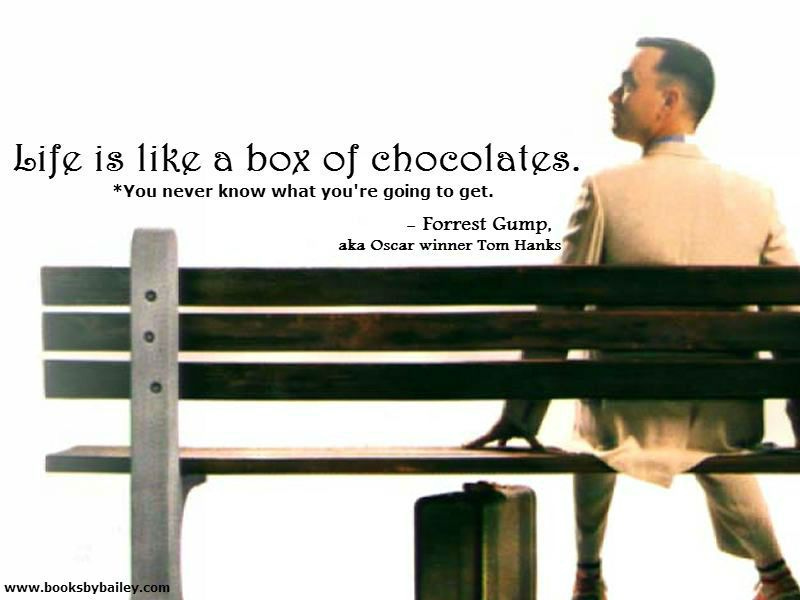
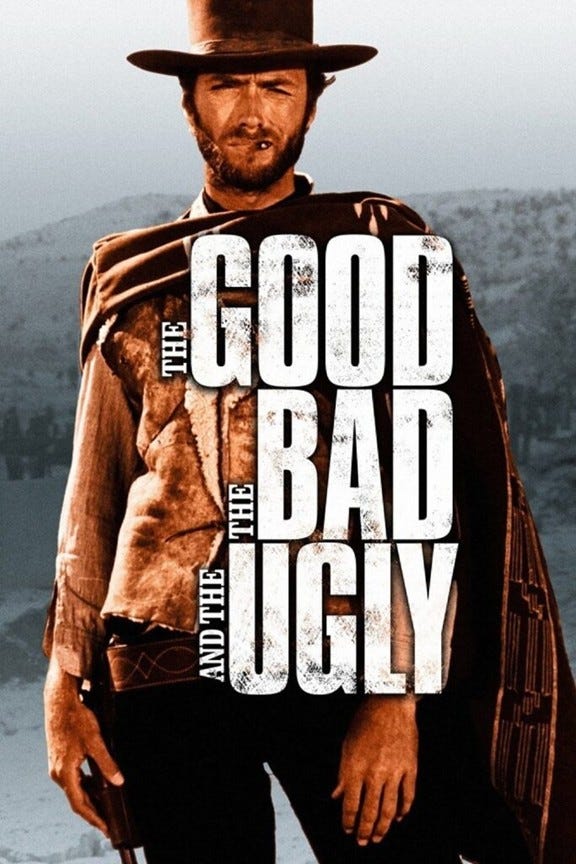

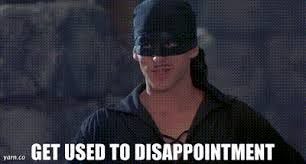

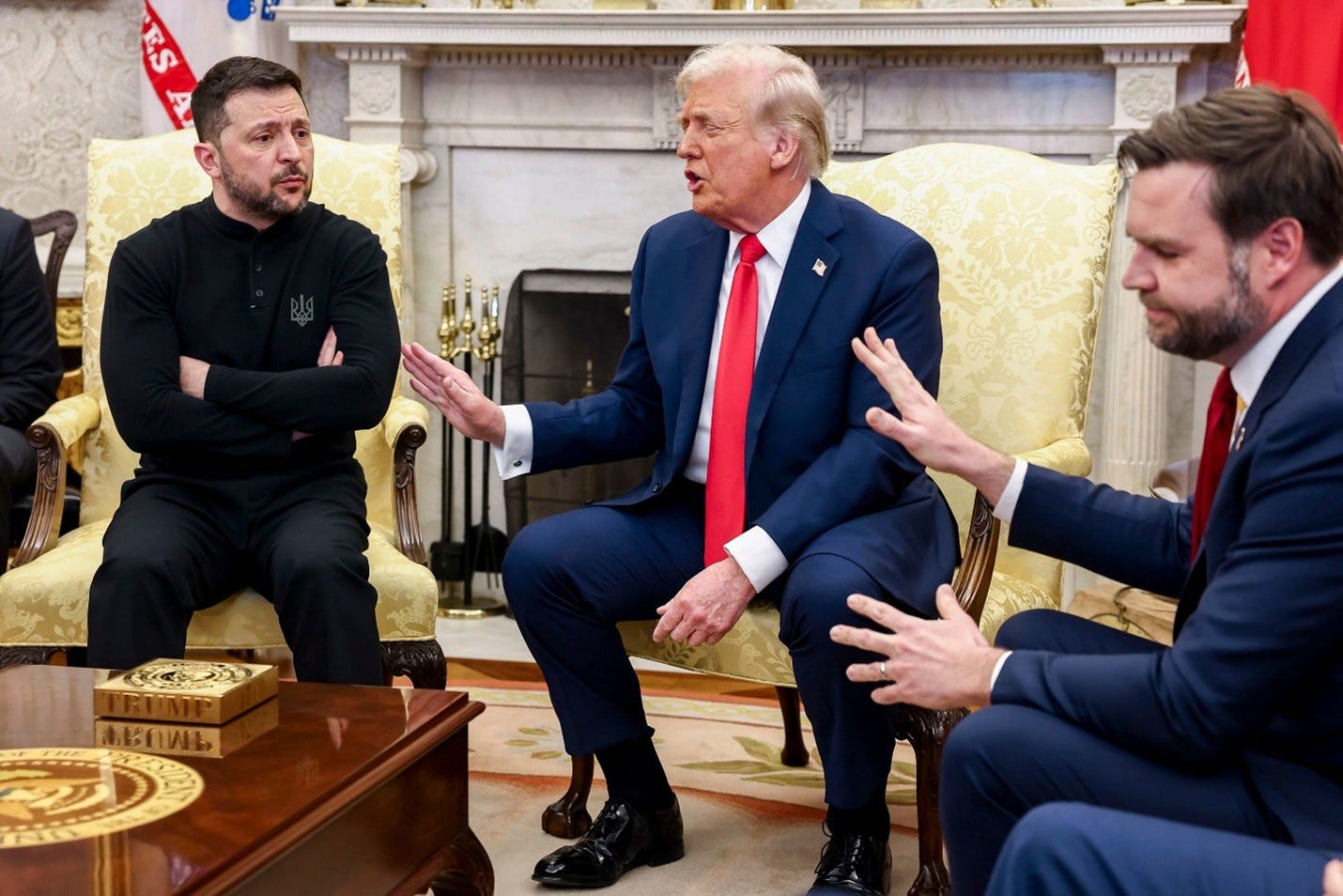
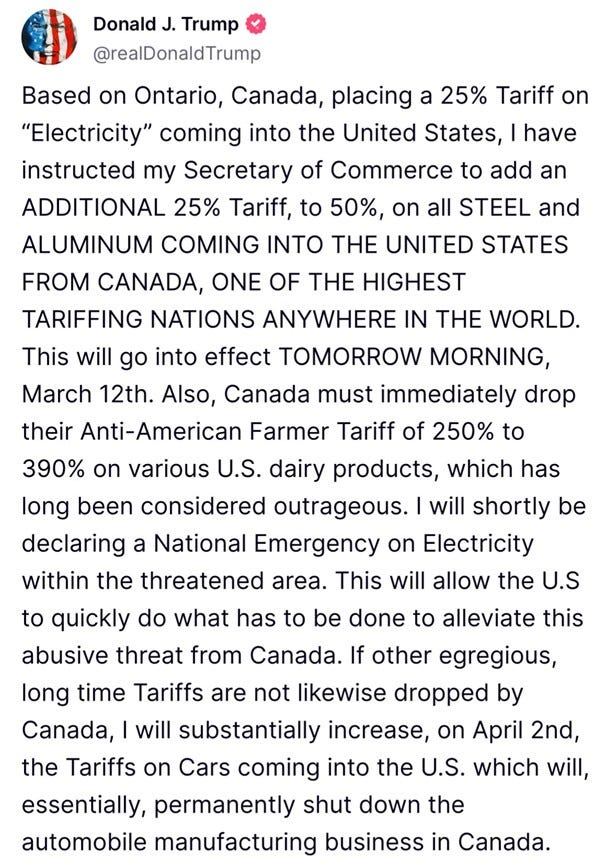
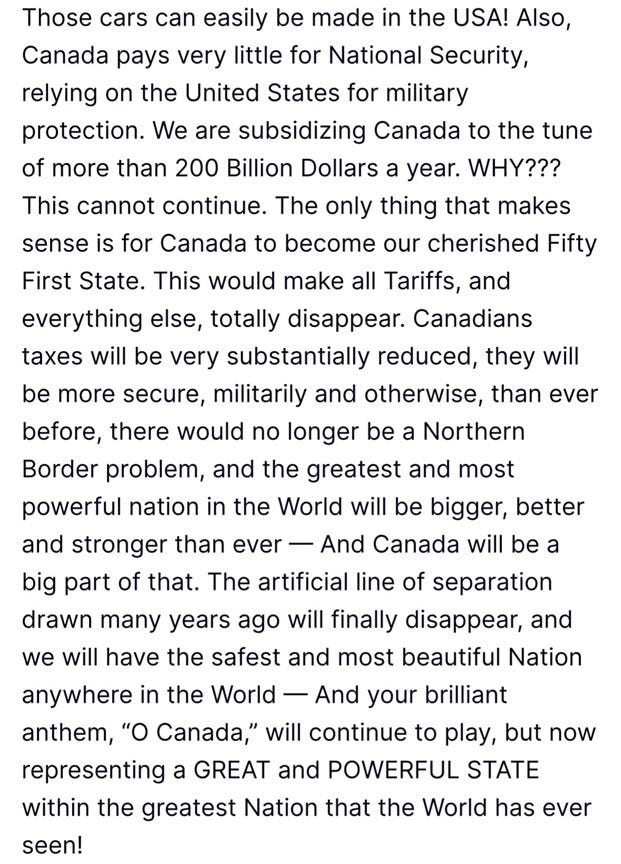
Seems like this week TDS went into over-drive. I used to hang with Democrats and notice when they start to freak out, given they show up on the x feed; otherwise, not. I am non-pulsed about Trump. Neither a fan nor a foe. I tend to think he's part of the grand orchestration, post-covid jab, and can't understand why more don't at least see both sides, so good on you.
Honest question; Trump can only unilaterally impose tariffs by declaring an emergency. So who defines "emergency"? Surely not just the President. There must be a definition somewhere. When does the US court system weigh in? Or congress?